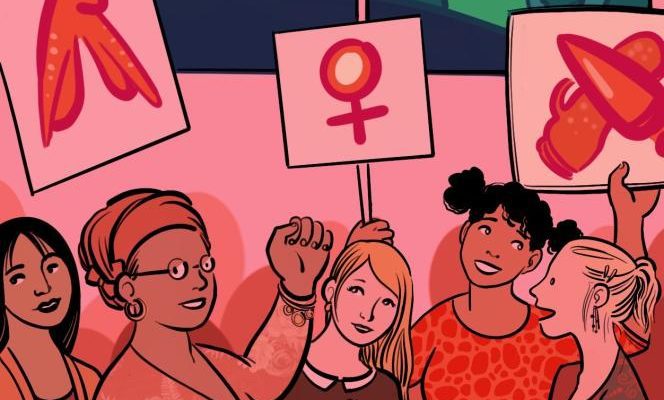SEX ACCORDING TO MAÏA
According to legend, men think about sex all the time. They wouldn’t even think about that. However, among the pile of essays and novels devoted to sex that I receive every week on my desk (a good dozen), very few are written by men. Not better in the media, where the specialized headings are held by women. And no better on social networks: I can name twenty sexperts, some of whom have hundreds of thousands of subscribers… but zero sexpert. This male shyness concerns gender issues as much as subjects related to sexual practices: a bit as if in the field of “gender and sex”, the mansplaining (this ability of men to monopolize the conversation) turned into manifesting (we agree that this word does not exist).
It is not that men are forgotten. Their concerns, their sexual health, their education, their pleasure, their desire, all of this is taken into account, dissected, sometimes reinvented… but essentially by women. On the tail side, this job is added to the sexual burden of women (in the couple, it is rather they who are concerned with contraception, seduction, the renewal of practices).
On the front side, the omnipresence of women gives quite amusing clashes between the name of the work and the name of the author. On a podcast, will you listen Balls on the table by Victoire Tuaillon or On the Verge by Anne-Laure Parmentier? In bookstores, do you hesitate between How to make love all night. Male multiple orgasm (Albin Michel, 1996) by Barbara Keesling and The Myth of Manhood (Robert Laffont, 2017) by Olivia Gazale? At the comic book section, will you choose The man on the pill (Marabulles, 2022) by Anne-Sophie Delcour and Lucy Macaroni, or On the way to a new masculinity (Mango, 2022) by Marie Bailliard? There are counterexamples, of course. But the majority of the production remains female.
Let’s clear the field: the fact that women talk about men’s sex, more than they do themselves, is not a problem in itself. There is no private hunting ground. There is no conflict of legitimacy either: women have been accustomed, for centuries, to having their hormonal changes, their periods or their deliveries explained to them by men… At least they will have understood the importance of speaking with respect for the bodies of others (misandres are rare)!
So let’s come to the question that has been bothering me for years: how to explain this massive under-representation of men on a subject that directly concerns them – and which a priori interests them?
You have 68.36% of this article left to read. The following is for subscribers only.
